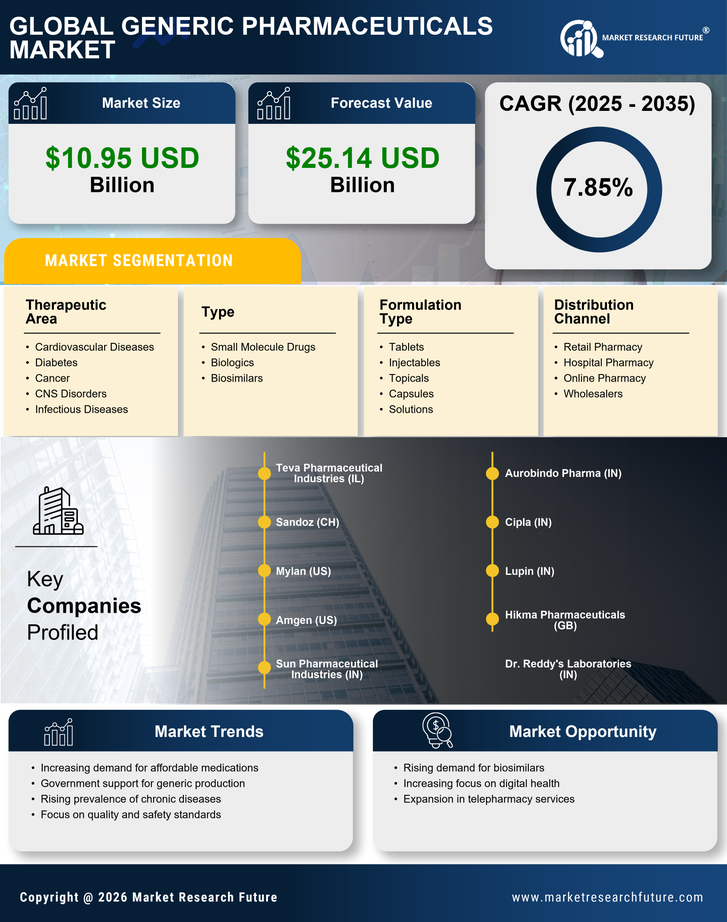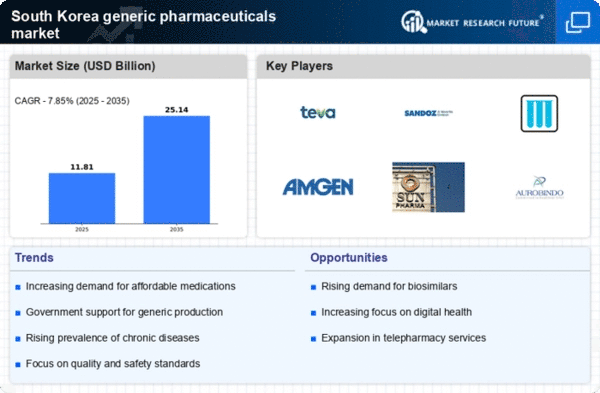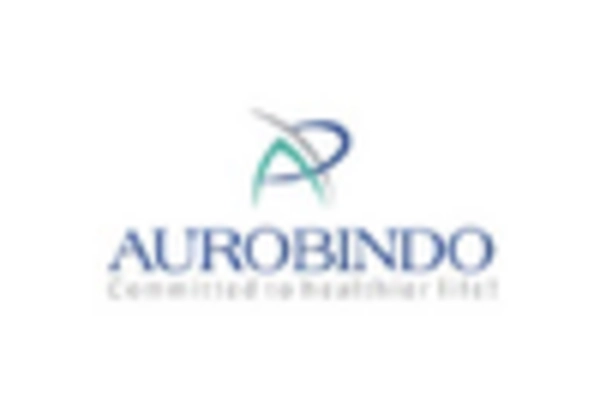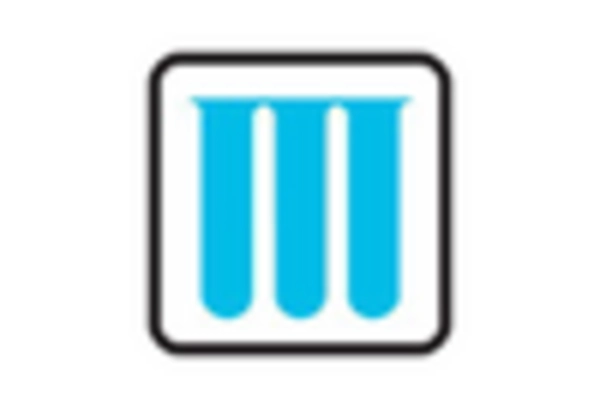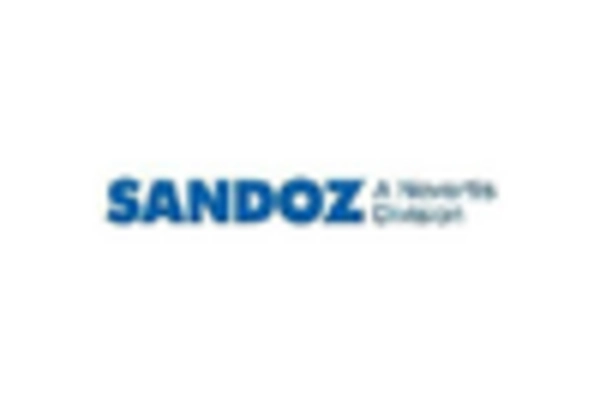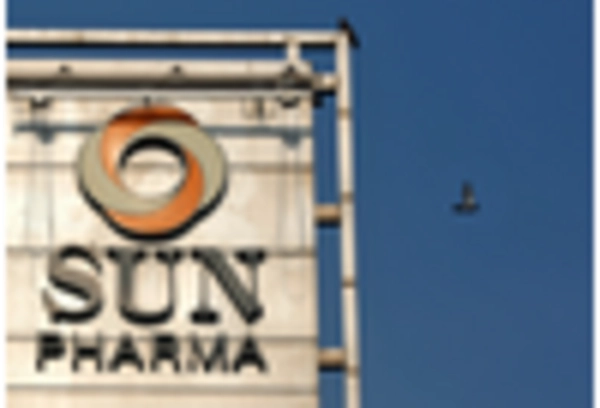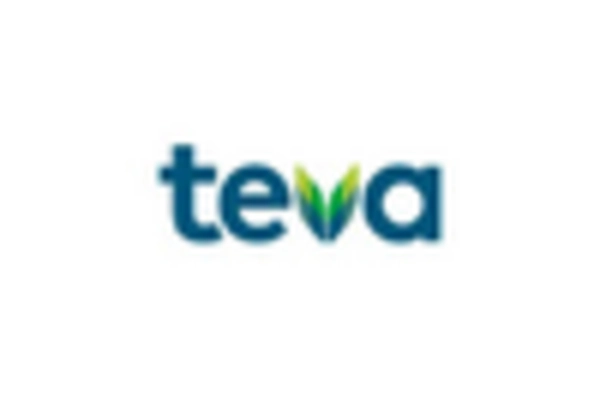Aging Population
South Korea's demographic shift towards an aging population is a critical driver for the generic pharmaceuticals market. By 2025, it is estimated that over 20% of the population will be aged 65 and older, leading to increased prevalence of chronic diseases that require long-term medication. This demographic trend necessitates a greater reliance on affordable treatment options, making generics an attractive choice for both patients and healthcare providers. The growing elderly population is expected to contribute to a surge in demand for generic medications, as they often require multiple prescriptions, thereby enhancing the market's potential for expansion.
Rising Healthcare Costs
The escalating costs associated with healthcare in South Korea are driving the demand for the generic pharmaceuticals market. As patients and healthcare providers seek cost-effective alternatives to branded medications, generic drugs present a viable solution. In 2025, healthcare expenditure in South Korea is projected to reach approximately $200 billion, with a significant portion attributed to prescription medications. This financial pressure encourages both consumers and healthcare systems to favor generics, which can be up to 80% cheaper than their branded counterparts. Consequently, the generic pharmaceuticals market is likely to experience robust growth as stakeholders prioritize affordability without compromising on quality.
Government Initiatives for Drug Accessibility
The South Korean government has implemented various initiatives aimed at enhancing drug accessibility, which significantly impacts the generic pharmaceuticals market. Policies promoting the use of generics, such as price controls and reimbursement schemes, are designed to encourage healthcare providers to prescribe these alternatives. In 2025, the government aims to increase the market share of generics to 50%, reflecting a strategic focus on reducing healthcare costs and improving patient access to essential medications. These initiatives not only support the growth of the generic pharmaceuticals market but also align with broader public health objectives.
Increased Awareness and Acceptance of Generics
There is a growing awareness and acceptance of generic medications among South Korean consumers, which serves as a significant driver for the generic pharmaceuticals market. Educational campaigns by healthcare professionals and government bodies have effectively communicated the safety and efficacy of generics, leading to a shift in public perception. As of 2025, surveys indicate that approximately 70% of patients are willing to choose generics over branded drugs, reflecting a cultural shift towards cost-effective healthcare solutions. This increased acceptance is likely to bolster the market, as more patients opt for generics, thereby enhancing their overall market share.
Technological Advancements in Drug Development
Technological innovations in drug development are reshaping the landscape of the generic pharmaceuticals market. Advances in biotechnology and manufacturing processes have enabled the production of high-quality generics that meet stringent regulatory standards. In South Korea, the adoption of cutting-edge technologies is expected to enhance the efficiency of generic drug production, potentially reducing costs and time to market. As a result, the market is likely to benefit from an influx of new generic products, catering to the diverse needs of patients and healthcare providers, thereby fostering competitive dynamics within the industry.
